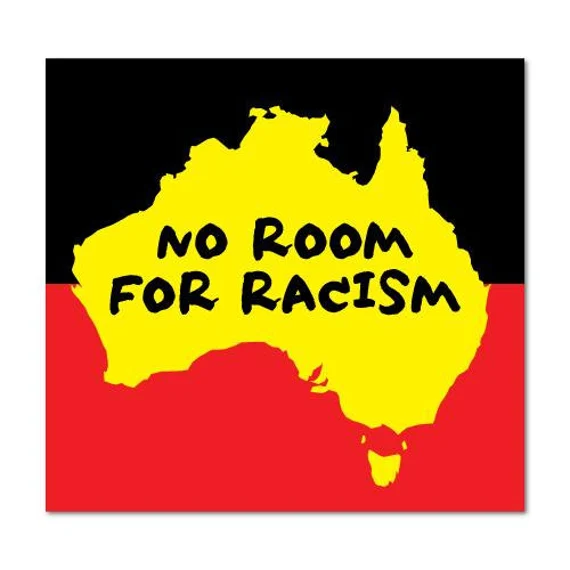The Racial Discrimination Act (RDA) of the Australian Government has been a positive step in the direction of a multicultural cohesive Australian society, sustainable in the long run. The RDA affords the Australian citizens a high level of protection against abuse that may possibly be based on race, religion, ethnic or cultural background, colour of skin and the like.
Section 18C of the current RDA in force makes unlawful and act that “reasonably likely to offend, insult, humiliate or intimidate another person or a group of people”. Such an act can come in a form of speech or through publication via any of the various different media forms such as speech.
The right to freedom of speech is universally acknowledged throughout the democratic world, including Australia, as a minimum basic human right and, is guaranteed and protected by law in most cases.
Whilst the basic right to freedom of speech must remain protected and must not be suppressed or taken away at any cost, we must also recognise that in order to have sustainable, peaceful communities, such right must also be mutually respected by members of the community or society. The unfettered right to freedom of speech must then be balanced against the rights of individuals and communities to be respected or, conversely, to not be abused by others. It is very important then to provide lawful deterrents to an unfettered right that is quite likely to generated discord, disharmony or even aggression amongst individuals and communities.
By taking away the words ‘offend, insult, humiliate’ from the existing law, the potential for abuse on the basis of race, religion, ethnic or cultural background, colour of skin etc will increase exponentially and we will be potentially seeing a return to the dark ages of apartheid.
This also raises the issue of political correctness on all occasions and of what is the level or where to draw the line in our speech and in dealing with other individuals or groups of people. Who are we to judge what may or may not offend, in the very least. It is a very difficult question to answer because each individual would have a unique level of understanding and tolerance.
So, what is justified in our expression verbally or via the published media?
The section immediately following s18C. Section 18D of the RDA specifically exempts conduct which has been done reasonably and in good faith for particular specified purposes, including the making of a fair comment in a newspaper. It is a provision which, broadly speaking, seeks to balance the objectives of s18C with the need to protect justifiable freedoms of expression.
On balance, the amendment to section 18C as proposed will do more harm than good in the long run and this amendment must not be supported
The Racial Discrimination Act (RDA) of the Australian Government has been a positive step in the direction of a multicultural cohesive Australian society, sustainable in the long run. The RDA affords the Australian citizens a high level of protection against abuse that may possibly be based on race, religion, ethnic or cultural background, colour of skin and the like.
Section 18C of the current RDA in force makes unlawful and act that “reasonably likely to offend, insult, humiliate or intimidate another person or a group of people”. Such an act can come in a form of speech or through publication via any of the various different media forms such as speech.
The right to freedom of speech is universally acknowledged throughout the democratic world, including Australia, as a minimum basic human right and, is guaranteed and protected by law in most cases.
Whilst the basic right to freedom of speech must remain protected and must not be suppressed or taken away at any cost, we must also recognise that in order to have sustainable, peaceful communities, such right must also be mutually respected by members of the community or society. The unfettered right to freedom of speech must then be balanced against the rights of individuals and communities to be respected or, conversely, to not be abused by others. It is very important then to provide lawful deterrents to an unfettered right that is quite likely to generated discord, disharmony or even aggression amongst individuals and communities.
By taking away the words ‘offend, insult, humiliate’ from the existing law, the potential for abuse on the basis of race, religion, ethnic or cultural background, colour of skin etc will increase exponentially and we will be potentially seeing a return to the dark ages of apartheid.
This also raises the issue of political correctness on all occasions and of what is the level or where to draw the line in our speech and in dealing with other individuals or groups of people. Who are we to judge what may or may not offend, in the very least. It is a very difficult question to answer because each individual would have a unique level of understanding and tolerance.
So, what is justified in our expression verbally or via the published media?
The section immediately following s18C. Section 18D of the RDA specifically exempts conduct which has been done reasonably and in good faith for particular specified purposes, including the making of a fair comment in a newspaper. It is a provision which, broadly speaking, seeks to balance the objectives of s18C with the need to protect justifiable freedoms of expression.
On balance, the amendment to section 18C as proposed will do more harm than good in the long run and this amendment must not be supported
